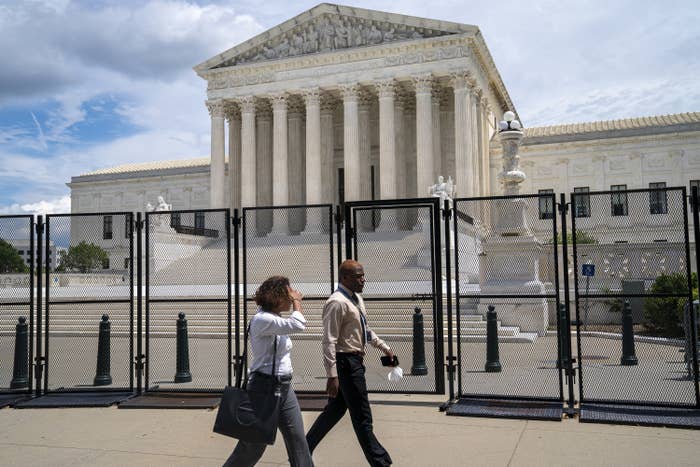
Investigators have been unable to identify the culprit behind the historic leak of last year’s Supreme Court draft opinion overturning abortion rights nationwide, the court’s marshal said Thursday, although the hunt continues.
A report from the top US court’s Office of the Marshal released Thursday detailed how they conducted 126 interviews with 97 employees and scoured computer and printer records to try to pinpoint who leaked Justice Samuel Alito’s draft opinion in Dobbs v. Jackson Women's Health Organization to Politico. The news website published the document on May 3, 2023 — more than six weeks before the court released its final opinion overturning Roe v. Wade.
“The leak was no mere misguided attempt at protest. It was a grave assault on the judicial process,” read a statement from the Supreme Court on Thursday released alongside the report. The justices underscored the need for secrecy during their deliberations, calling the leak an “extraordinary betrayal of trust.”
Immediately after the leak, Chief Justice John Roberts ordered the marshal's office, which normally is tasked only with providing security to the justices, to investigate the matter, but the team ultimately came up empty-handed.
“At this time, based on a preponderance of the evidence standard, it is not possible to determine the identity of any individual who may have disclosed the document or how the draft opinion ended up with Politico,” the report concluded. “No one confessed to publicly disclosing the document and none of the available forensic and other evidence provided a basis for identifying any individual as the source of the document.”
Investigators said their digital analysis led them to believe it was unlikely the court’s systems were hacked by an outside actor. “Investigators also cannot eliminate the possibility that the draft opinion was inadvertently or negligently disclosed – for example, by being left in a public space either inside or outside the building,” the report added.
In addition to the court's nine justices, 82 employees had access to either electronic or hard copies of the draft opinion, per the marshal.
The marshal said “the investigation focused on Court personnel — temporary (law clerks) and permanent employees — who had or may have had access to the draft opinion.” Representatives from the court did not immediately respond to a query on whether the justices themselves were among these "permanent employees" or were excluded from the investigation.
Thursday’s report said that the marshal’s team had “determined that no further investigation was warranted with respect to many” of these 82 employees.
Any employee who was asked to turn over their private cellphones for review did so in order for investigators to review call logs, text messages, and billing statements, but nothing incriminating was found.
Court employees were also asked to sign affidavits swearing under penalty of perjury that they were not behind the leak. “A few of those interviewed admitted to telling their spouses about the draft opinion or vote count, so they annotated their affidavits to that effect,” the report advised.
Some electronic data still needs to be reviewed, and some lines of inquiry remain open, but for now, the court appears more concerned with trying to prevent such leaks from occurring again.
To do so, the marshal has made a series of security reform proposals, including severely limiting the number of employees who have access to sensitive documents.
In November, the New York Times reported that former anti-abortion leader Rev. Rob Schenck had written to the chief justice to say he’d been told of the favorable outcome of a 2014 case on contraception and religious rights prior to its announcement.
That case, too, involved a majority opinion authored by Justice Alito, who the Times reported had dined with friends of Schenck’s, one of whom then emailed him a day later to say she’d learned “some interesting news” and to call her — not email her — to learn more.
Alito denied disclosing the 2014 opinion.
